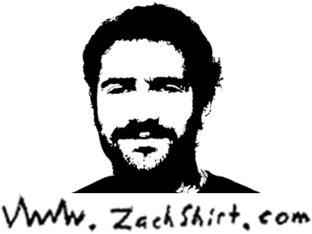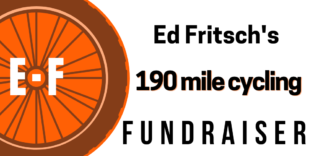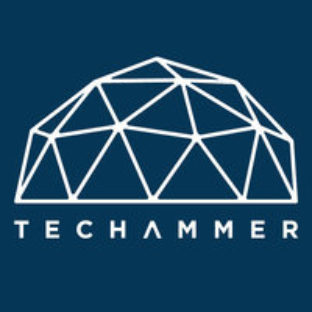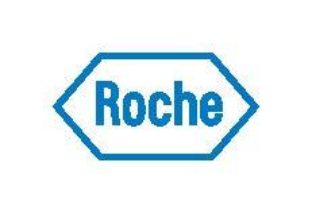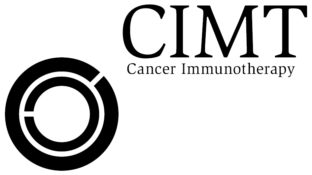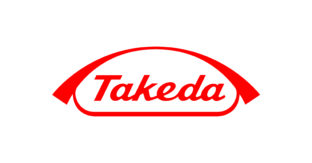Purpose
Cancer immunotherapy is a rapidly evolving field that holds much justified hope and promise based on the striking and durable clinical activity observed in multiple patients. Many key elements for constructing highly effective cancer immunotherapies have been identified and new advancements are being made daily. Clinicians and researchers around the world are beginning to understand how to put these pieces together and moving closer to our primary goal of bringing lasting benefit to all victims of this horrible disease.
ACIR’s mission is to accelerate the advancement of cancer immunotherapy by providing, free-of-charge and readily accessible on the internet, a weekly synopsis of the key advances in this fast moving and multifaceted field. Up-to-date knowledge is critical to fostering the necessary creativity and productivity of researchers, but this is a daunting, time-consuming, and inefficient task for individual researchers, and thus often left undone. We hope that by making it easier for all researchers to stay up to date, our summary will enhance the work of many, bringing us ever closer to curing this deadly disease.
We strive to provide meaningful and unbiased content, and to not favor any approach, product or research team. We encourage our readers to read the original articles for full details.
Origins
The Fritsch Foundation, a charitable, 501(c)(3) not-for-profit organization, had its earliest roots in 2011 when Jan, Ed Fritsch’s wife of almost 40 years, passed away from breast cancer. Trying to find some way to battle back against this terrible disease, Ed searched the recent cancer literature daily, and came across immunotherapy. Sadly, four years later, Ed’s son Matt passed away from melanoma. Matt, a successful engineer at SpaceX, had expressed the wish to his friend that if the cancer took him, he wanted his SpaceX stock donated to cancer research. Ed and Matt’s sisters Lisa and Katie all thought this was a wonderful request to honor.
Trying to find a creative way to use the funds, Ed recalled the value of staying up to date on the current literature. Applied to the rapidly expanding and fast-moving field of cancer immunotherapy, digesting and categorizing the rapid advancements would be an exceptional resource to researchers everywhere. This was how the Fritsch Foundation was born – inspired by the kind and selfless generosity of a cancer victim.
Ed discussed this with Ute Burkhardt, got her intrigued by the idea, and they have been building on it ever since. In the fall of 2015, Accelerating Cancer Immunotherapy Research (ACIR) was formed to carry out the mission of the Fritsch Foundation. In 2019, ACIR's work was recognized by the Cambridge Chamber of Commerce with a Visionary Award.
Who We Are
Ed Fritsch
Co-Founder - President
Ed earned a Ph.D. in Molecular Biology with Nobel Laureate Howard Temin, and with Tom Maniatis helped build the first library of the human genome and was co-author of ‘‘Molecular Cloning: A Laboratory Manual’’ which spread the application of recombinant DNA technology in the biomedical sciences. He worked for many years in senior positions in the biopharmaceutical industry. Like too many others, Ed lost loved ones – his wife Jan and son Matt – to cancer, which inspired him to leave retirement and battle back, specifically in the breakthrough field of cancer immunotherapy. As NeoVax project leader at the Dana-Farber Cancer Institute and co-founder of Neon Therapeutics, he brought the opportunity of personalized neoantigen-based cancer vaccines to the patient. Ed is currently a Presidential Fellow at the Dana-Farber, President of the Fritsch Foundation, and co-founder of ACIR.
Ute Burkhardt
Co-Founder - Executive Editor
Ute's career path has been characterized by a strong focus on cancer immunotherapy. She received her Ph.D. in biochemistry from Goethe University, Frankfurt, Germany, for studies that focused on optimizing cancer vaccine design using murine models in Winfried Wels’ lab. In her postdoctoral work in Cathy J. Wu’s lab at the Dana-Farber Cancer Institute she developed innovative approaches to dissect the global and clonal dynamics of T cell responses underlying promising graft-versus-leukemia activity in patients with chronic leukemia after post-transplant personalized vaccination. Ute has been actively involved in designing and building ACIR since its inception.
Lauren Hitchings
Senior Scientific Writer and Illustrator
Lauren is a scientific writer with a degree in Biology from Northeastern University and a broad background in scientific research, journalism, publishing, and communications. Her previous work has appeared in New Scientist, Reviewed, USA Today, and Wired UK. She specializes in translating highly complex scientific content into curated writing and schematic illustrations that are easy to digest.
Gaelle Lespinasse-Llambi
Communications and Outreach Coordinator
Gaelle has a background in communications and public relations. She has a long experience in promoting non-profit organizations through traditional media and social media. She has developed educational programs and outreach strategies for several cultural organizations. She is excited to promote and foster a deeper understanding of cancer immunotherapy research through ACIR’s digests. She holds a Master in International and Intercultural Communications from the Université de Bourgogne (Dijon, France).
Maartje Wouters
Freelance Scientific Writer
Maartje has a Ph.D. in tumor immunology from the University of Groningen, the Netherlands, and obtained postdoctoral training at BC Cancer in Victoria, Canada. Her research focused on the influence of the tumor microenvironment on immune infiltration and function. She left the lab bench to pursue a career in science and medical writing. Her freelance writing business provides medical writing services for both biotech and academia. She also co-runs a blog for young women in science called The BioGirls.
Alex Najibi
Freelance Scientific Writer
Alex received his PhD from Harvard University studying biomaterials for immuno-oncology, focusing on therapeutic cancer vaccines and strategies to modulate the tumor microenvironment. He is a freelance writer and biotech startup consultant excited to make current immunotherapy research more accessible with ACIR.
Katherine J. Turner
Contributing Scientific Writer and Editor
Katherine has over thirty-five years of experience in biotechnology and has extensive knowledge in all aspects of research from discovery through clinical development and the market. Her knowledge spans a wide range of therapeutic areas including oncology, hematopoiesis, transplantation, neurobiology, tissue repair, and fibrosis. She has played key scientific roles in early-stage companies such as Scholar Rock and Attogen and has held senior management positions in pioneering companies including Genetics Institute and Biogen. She received her PhD in Biochemistry from Virginia Tech, and obtained post-doctoral training at the Courtauld Institute for Biochemistry in London, UK and Brandeis University.
Stan Wolf
Contributing Scientist Writer and Editor
Stan has more than 30 years of laboratory and managerial experience in genetics, molecular biology, and immunology. Stan has worked to identify and validate novel immune and inflammation-related disease targets, and was a member of the Leadership Team in the Pfizer Inflammation group. Stan received a Ph.D. in Molecular Biology from Washington University and obtained post-doctoral training and worked as an Assistant Professor in the Genetics Unit at The Johns Hopkins Hospital in Baltimore before joining the Genetics Institute and pursuing a career in pharmaceutical development. Most recently, Stan has worked in science education, developing project-based science curricula and teaching science at the elementary and middle school levels.
Paula Hochman
Contributing Scientific Writer and Editor
Paula holds a Ph.D. in immunology and has more than 3 decades of experience in the academic and biotechnology sectors. In 21 years at Biogen doing basic and translational research, and pre-clinical and clinical development sciences, Paula worked to elucidate and patent novel biological pathways and methods, and to develop novel therapeutics from discovery to clinic to market. She contributed to the development, registration, and lifecycle management of Amevive for psoriasis, and Avonex, Plegridy, Tysabri, and Zinbryta for multiple sclerosis.
Shishir Pant
Freelance Scientific Writer
Shishir completed his Ph.D. in cancer biology from the University of Helsinki in the Klefstrom research group. His research focused on the role of the microenvironment in tumor progression, metastasis, and immune evasion in breast cancer. He is now a postdoctoral fellow in the Sorger lab at Harvard Medical School, where his research focus is to decipher tumor intrinsic and extrinsic factors responsible for therapy resistance in melanoma, using highly multiplexed imaging, spatial transcriptomics, and genetically engineered tumor models. Shishir is highly enthusiastic about science communication and also runs his own blog called ChasingCancer.
Nathan Suek
Podcast Co-Host
Nathan is a medical student with a strong interest in the translation of basic science findings to the clinic. He spent several years studying the role of the innate immune system in cancer immunotherapy under Jedd Wolchok at Memorial Sloan Kettering. Nathan is invested in effective teaching, in particular, the public communication of science so that more people can understand research and help advance the scientific community. With ACIR, Nathan is currently working on a podcast to explore the latest questions in cancer immunotherapy. He received his AB in Chemistry from Princeton University and is currently an MD candidate at Columbia University.
Morgan Janes
Freelance Scientific Writer
Morgan is a recent PhD graduate of the Health Sciences and Technology (HST) program at Harvard and MIT. As a member of the Mitragotri Lab, her interests span the fields of drug delivery and cell therapy with ultimate applications in immuno-oncology and infectious disease. Outside of the lab, she is passionate about engaging with the local biotech community to create forums for discussion and innovation. She previously served as co-president of the MIT Biotech Group and cofounder of the Area Two Bio Fund, an investment club for publicly traded biotech companies. She is excited to contribute to science communication efforts and learn more about impactful research in the immunotherapy field.





